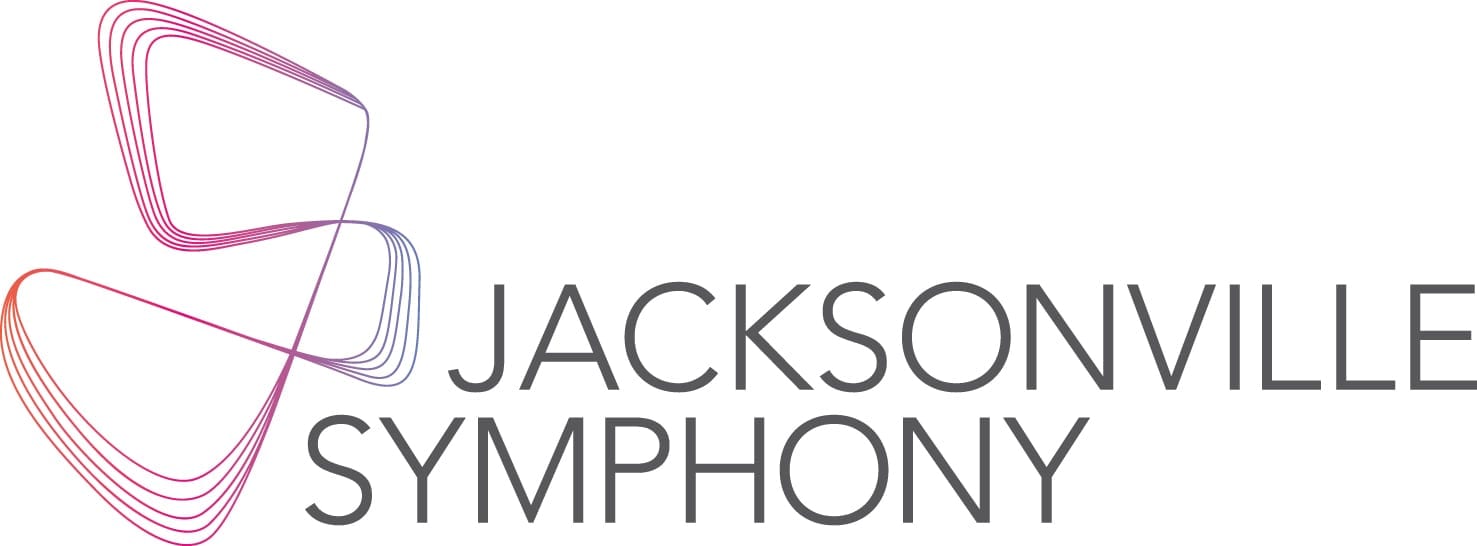In this issue of the Symphony’s newsletter, award-winning Stage Director Kristine McIntyre shares a sneak peek at the Symphony’s largest production of the season: Wolfgang Amadeus Mozart's opera The Magic Flute. You’ll also learn about Sphinx Trumpeter Adrian Speyrer who shares his involvement in Diversity, Equity and Inclusion initiatives, the return of the Community Side-By-Side program, exciting news about the Symphony’s education programs and patrons who have attended recent performances.
Inside the Opera
Q&A With Acclaimed Stage Director Kristine McIntyre
What do you think audiences will discover from The Magic Flute, and what would you like them to discover?
"I hope they will discover, if they don't know it already, that opera is accessible and engaging and open to everyone. If you are a music lover, there is nothing better than actually seeing and hearing [Wolfgang Amadeus] Mozart's music well-staged and well-sung, as he intended. If you are a theater person, then you will see how we can engage the eye and the ear together in our storytelling. I think opera is the most complete of the performing arts. It basically encompasses everything else, and I love sharing that with audiences."
"I hope they will discover, if they don't know it already, that opera is accessible and engaging and open to everyone. If you are a music lover, there is nothing better than actually seeing and hearing [Wolfgang Amadeus] Mozart's music well-staged and well-sung, as he intended. If you are a theater person, then you will see how we can engage the eye and the ear together in our storytelling. I think opera is the most complete of the performing arts. It basically encompasses everything else, and I love sharing that with audiences."
Read More
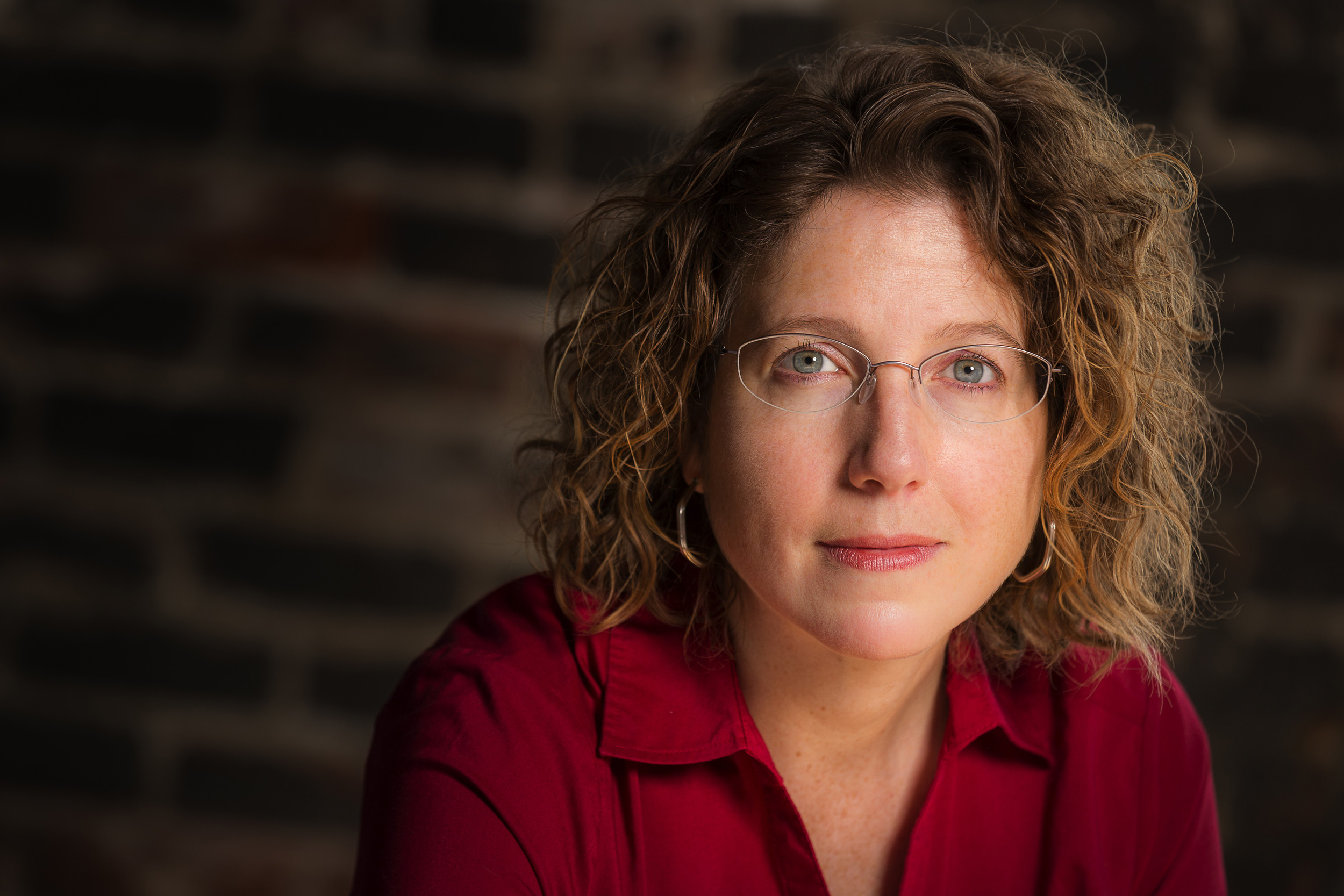
Behind the Bows
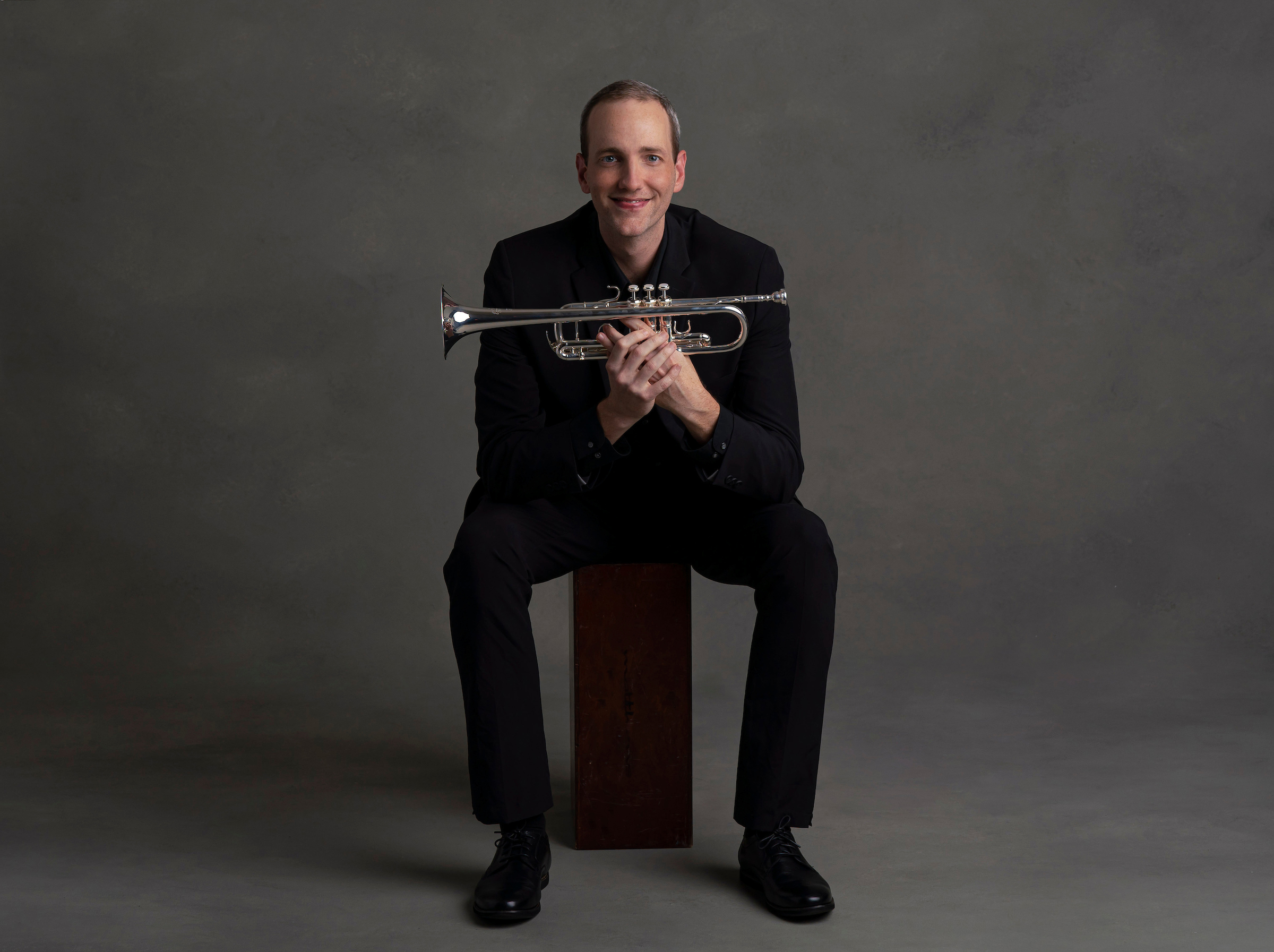
The Jacksonville Symphony Furthers DEI Efforts and Welcomes Trumpeter Adrian Speyrer
Adrian Speyrer is a professional trumpetist and native of New Orleans, Louisiana, who earned a bachelor’s degree in Music Performance from Louisiana State University in 2009. Before graduating from Chicago College of Performing Arts with a master's degree in Music Performance in 2011, he served as third trumpet with the Acadiana Symphony Orchestra and was appointed as a member of the Civic Orchestra of Chicago. After completing his appointment with the Civic Orchestra, Speyrer went to China to play principal trumpet with the Beijing Symphony Orchestra and toured with the organization in Austria, Czech Republic, Switzerland, Mexico, the United States and across eastern China. Also active in chamber music, he has taught masterclasses throughout China, Korea, Mongolia and Singapore with a brass trio.
Read More
Under the Spotlight
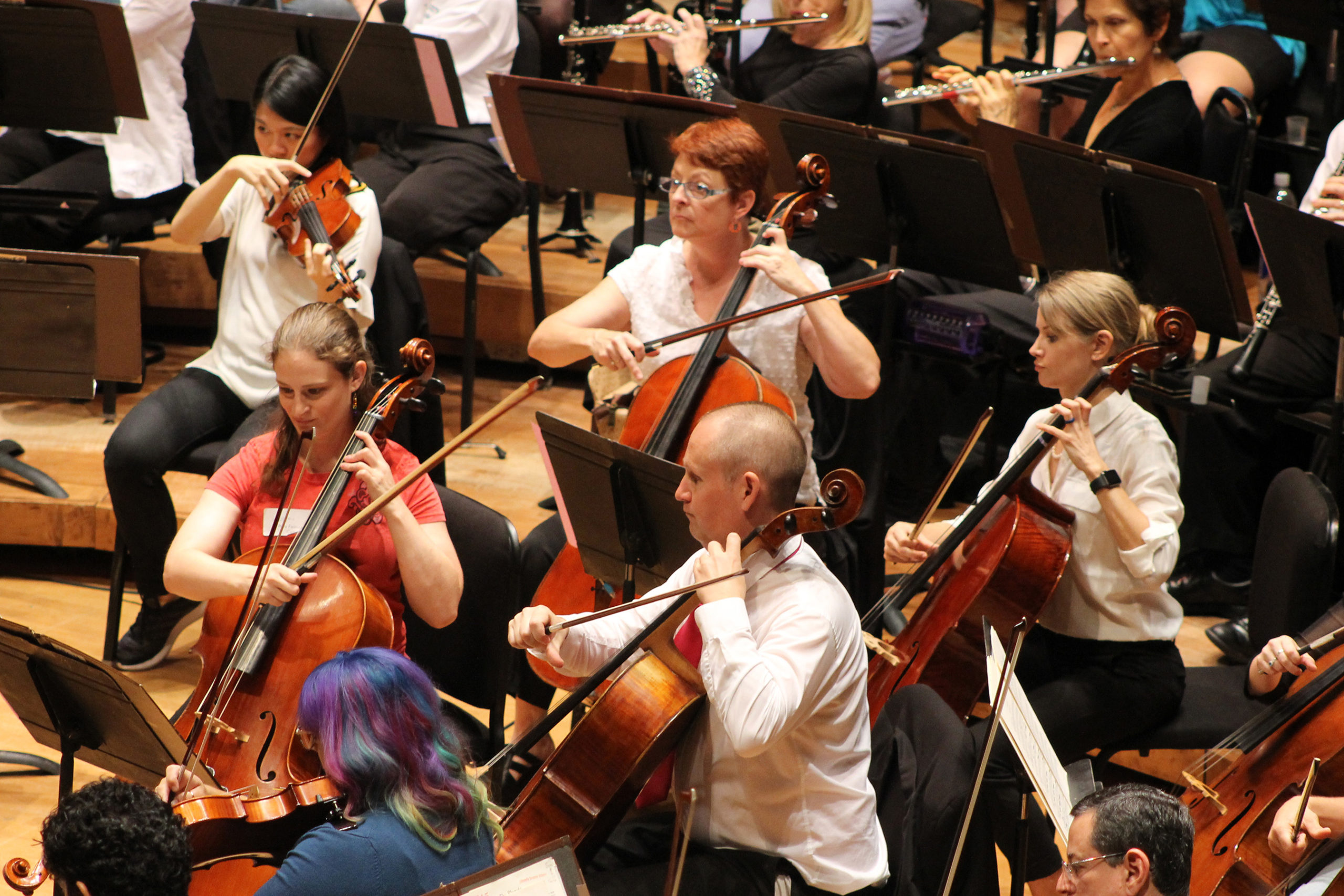
Connecting Through Music: Community Side-By-Side Returns to the Symphony
On March 22, 2023, at 7:30 p.m., musicians from the Symphony as well as those from the Jacksonville community will perform side by side on the Jacoby Symphony Hall stage. These local musicians come from a wide variety of backgrounds, and everyone, from college students to retirees, is invited to play with the professionals. As part of this unique program, the participants can mingle with the Symphony musicians backstage, play in rehearsals and perform in front of an audience.
Read More
Beyond the Barriers
What Makes Us Human: The Jacksonville Symphony Transforms Students’ Lives Through Music Education Programs
Why is music education important? Some may think music education is a privilege. However, at its core, music is a universal language that creates the melodies of our lives, and music education is the necessary vehicle we use to transport students to other destinations and new levels of growth. Through music, students can embark on a magical journey and explore the life and time of Johannes Brahms, Ludwig van Beethoven and other iconic composers. They can travel and hear the emerging, diverse musical sounds of New York City, New Orleans, Chicago and a world of other breathtaking, faraway places. They can discover friendship and a profound sense of self-accomplishment knowing their skills improve each and every time they practice.
Read More
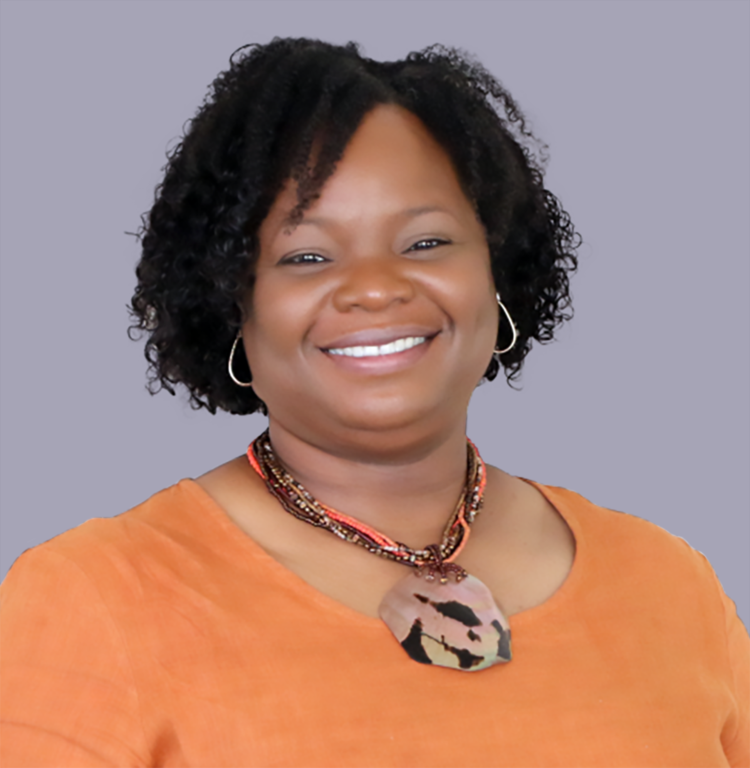
Along for the Song
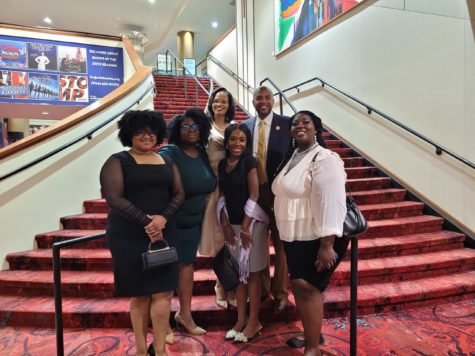
Edward Waters University Students Pictured:
Jada Harvey- Biology Presidential Scholar, Senior
• Ikiya Dixon- Communications Major, Senior
• Jeronda Jenkins- Biology Presidential Scholar, Sophomore
• Kimberly Holland- Business Administration Major, Freshman
Edward Waters University students enjoyed a night at the Jacksonville Symphony for The Queens of Rock & Soul: Tina Turner & Aretha Franklin concert with Edward Waters University President, Dr. Zachery Faison, Jr. and his wife Mrs. Tyciee Faison.
Inside the Opera
Q&A With Acclaimed Stage Director Kristine McIntyre
 What do you think audiences will discover from The Magic Flute, and what would you like them to discover?
What do you think audiences will discover from The Magic Flute, and what would you like them to discover?"I hope they will discover, if they don't know it already, that opera is accessible and engaging and open to everyone. If you are a music lover, there is nothing better than actually seeing and hearing [Wolfgang Amadeus] Mozart's music well-staged and well-sung, as he intended. If you are a theater person, then you will see how we can engage the eye and the ear together in our storytelling. I think opera is the most complete of the performing arts. It basically encompasses everything else, and I love sharing that with audiences."
How does Wolfgang Amadeus Mozart's music inform what you want to say with your stage directing?
“For me, everything starts with the music. It's why I became an opera director as opposed to staying in theater, which is my background. I've always loved how music, particularly Mozart's music, can really evoke a scene and tell us a story if we just listen in the right way. Now, sometimes it's interesting to go against the most obvious aspect of the music, say, having a singer do something very slowly against very fast or energetic music, but even that is a response to the music, using it to subvert or make a comment on the story.”
What is your process of staging a production like this and working with the vocalists?
“Well, our rehearsal period is quick, and the technical elements for something like this take a long time to set up, so most of the work is actually done before I ever come to Jacksonville. We've actually been planning this for over a year, and I really have to see the whole thing in my head months and months in advance in order to make it happen. I always come into rehearsal with a plan, especially for something like this where there isn't a traditional proscenium stage (the frame around the stage through which the action of a play is viewed) or hard scenery. I have a vision, and my job is to share it with the vocalists and help them engage with it. Then, I use what they bring to the process to enable and empower them to have fun and tell the story.”
What is one scene you are looking forward to staging and why?
“I'm probably supposed to say that it's something to do with Tamino and Pamina and their journey together, but the honest truth is that Papageno is my favorite character, and I love staging his arias because he's just so much fun. He's warm, silly and completely human, and we all love him. A good Papageno immediately engages with the audience, no matter if they are eight or 80. That's just a gift to a director. It makes my job very easy!”
When you're staging a work with a Symphony, what are the greatest challenges?
“Well, not having more physical stage space is always a challenge and the fact that we have to be very limited in any furniture or props. However, for something like The Magic Flute, the benefits of using projections surely outweigh all of that. I think it's interesting to have the Symphony in the middle and a part of the storytelling. That feels very authentic to this piece, in which music played by the characters has such a central role (think of Papageno's pan pipes and bells as well as Tamino's flute). The Symphony is essentially a character, and that's something I hope we can really take full advantage of.”
How has working with the Jacksonville Symphony been so far?
“Vice President and Artistic Administrator Tony Nickle is very persistent! He first started trying to bring me to Jacksonville before the pandemic, and as soon as he was able to, he got me to agree to this production of The Magic Flute. It's been lovely planning a unique production in which I'm able to do some things I've never been able to do before and to make this production of The Magic Flute welcoming and inviting to all audiences.”
What do you think audiences will discover from this production, and what would you like them to discover?
“I hope they will discover, if they don't know it already, that opera is accessible and engaging and open to everyone. If you are a music lover, there is nothing better than actually seeing and hearing Mozart's music well-staged and well-sung, as he intended. If you are a theater person, then you will see how we can engage the eye and the ear together in our storytelling. I think opera is the most complete of the performing arts. It basically encompasses everything else, and I love sharing that with audiences.”
In your perspective, what makes The Magic Flute one of the most cherished and beloved operas of all time, and how do you think it speaks to people?
“Again, I think Papageno has a lot to do with it! Mozart and his librettist Emmanuel Schikaneder were very smart by including characters that everyone can relate to. But, at its heart, The Magic Flute is really a love story and a hero/heroine journey wrapped up in one. Two young people fall in love and travel together along a dangerous path, overcoming all sorts of obstacles that ultimately prove they are meant to be together. So, there's a little something for everyone, and along the way it's both funny and quite moving.”
What else would you like our audiences to know about you and this production?
“Well, if you are opera-curious or opera-skeptical, come and give this one a try. We're singing it in English, so it's immediately accessible and understandable, and the staging will be lots of fun! I promise it will delight and entertain you and hopefully help you fall in love with the beauty of the human voice and the extraordinary ability of music to tell a magnificent story.”
Behind the Bows
The Jacksonville Symphony Furthers DEI Efforts and Welcomes Trumpeter Adrian Speyrer
 The Jacksonville Symphony strives to make a difference in the arts so that musical opportunities are accessible to all, both on and off the stage, through its robust Diversity, Equity and Inclusion (DEI) initiatives.
The Jacksonville Symphony strives to make a difference in the arts so that musical opportunities are accessible to all, both on and off the stage, through its robust Diversity, Equity and Inclusion (DEI) initiatives.
Part of the Symphony’s DEI Strategy is to diversify audiences who attend the Symphony’s concerts and to recruit and retain musicians from a wide variety of backgrounds and experiences. Partnering with the Symphony to create an orchestra that is reflective of the community it serves is Sphinx, a social justice organization whose mission is to “transform lives through the power of diversity in the arts.”
Musicians who are just beginning their musical journeys, seasoned professionals, administrators and entrepreneurs are among the many individuals who Sphinx supports. The organization provides a wide variety of services that highlight musicians’ achievements and foster their artistic growth. These include year-round tuition-free education, performances, tours of four premiere ensembles, creative youth development, sector-wide partnerships with 300+ organizations, new commissions by Black and Latinx composers and many other initiatives.
Trumpetist Adrian Speyrer has participated in Sphinx’s programs for several years and will be joining the Jacksonville Symphony for its two Mozart, Brahms & Shepherd concerts on May 19 and 20.
Adrian Speyrer is a professional trumpetist and native of New Orleans, Louisiana, who earned a bachelor’s degree in Music Performance from Louisiana State University in 2009. Before graduating from Chicago College of Performing Arts with a master's degree in Music Performance in 2011, he served as third trumpet with the Acadiana Symphony Orchestra and was appointed as a member of the Civic Orchestra of Chicago. After completing his appointment with the Civic Orchestra, Speyrer went to China to play principal trumpet with the Beijing Symphony Orchestra and toured with the organization in Austria, Czech Republic, Switzerland, Mexico, the United States and across eastern China. Also active in chamber music, he has taught masterclasses throughout China, Korea, Mongolia and Singapore with a brass trio.
Upon returning to America, Speyrer played second trumpet with the Louisiana Philharmonic Orchestra and many other orchestras around the United States. Speyrer is currently active in Chicago based chamber music ensembles. He is also a founding member of the New Chicago Brass ensemble as well as an active freelancer and educator in the Chicago area.
His musical journey began when his mother came to the United States from Argentina and quickly gained a profound appreciation for the diverse music, art and cultures that she encountered. Speyrer explains that she would take him and his brother to many different types of concerts, which ultimately inspired Speyrer’s passion for playing the trumpet.
“I can remember regularly going to listen to my local orchestra since I was a young child. Eventually, I couldn’t bear only watching and hearing this wonderful music. I had to be a part of it,” explained Speyrer. “Through my experiences in music, I have been fortunate to meet and work with many amazing people both in my community and around the world.”
Speyrer’s passion for pursuing music across the globe lead to his involvement with the Sphinx organization starting in the fall of 2020. Since then, with Sphinx’s sponsorship, he has been able to perform with several orchestras throughout the U.S. including the Milwaukee Symphony, Kalamazoo Symphony, Elgin Symphony and Southbend Symphony. Through his involvement, he has also met many high-caliber musicians as part of the Sphinx Orchestral Partners Auditions (SOPA) Excerpt Competition. SOPA is a unique opportunity for Black and Latinx orchestral musicians to audition for a panel representing several orchestras that seek to invite musicians to auditions, pre-advancement at auditions and/or placement on substitute player lists.
“Music can be one of the most inspiring things in any person's life, regardless of background,” said Speyrer. “Having the accessibility and opportunity to be able to perform with such prestigious orchestras can hopefully inspire others to keep listening and performing orchestral music. Being able to connect and relate to a wider audience is paramount in continuing the growth of symphonic and orchestral music.”
In sponsorship with Sphinx, Speyrer will be joining the Jacksonville Symphony for its two Mozart, Brahms and Shepherd concerts on May 19 and 20 to perform the world premiere of Sean Shepherd’s original commission, Wolfgang Amadeus Mozart’s Symphony No. 40 and Johannes Brahms’ Double Concerto featuring violinist Simone Porter and cellist Joshua Roman.
“The Jacksonville Symphony is a fantastic organization with a very high level of performing. Being able to work with these musicians for a week will be such a valuable learning experience as well as a tremendous joy,” said Speyrer. “I am incredibly excited to be able to perform with the Symphony in Jacoby Symphony Hall and play my part in this impressive lineup of pieces.”
Speyrer notes the importance of organizations like the Symphony who strive to make the arts accessible to all musicians and listeners and hopes that more arts organizations will join its mission to create a more diverse, equitable and inclusive world.
“The inherent qualities of music promote unity,” said Speyrer. “Everyone, performers and audience members alike, can make a world of difference by cooperating to create art that both embraces and transcends cultural differences.”
Click Here to Return to the Newsletter
Under the Spotlight

Connecting Through Music: Community Side-By-Side Returns to the Symphony
On March 22, 2023, at 7:30 p.m., musicians from the Symphony as well as those from the Jacksonville community will perform side by side on the Jacoby Symphony Hall stage. These local musicians come from a wide variety of backgrounds, and everyone, from college students to retirees, is invited to play with the professionals. As part of this unique program, the participants can mingle with the Symphony musicians backstage, play in rehearsals and perform in front of an audience. The program, previously called the Civic Orchestra, makes its return after five years. Associate concertmaster of the Jacksonville Symphony, Melissa Barrett, is both a participant of the program and a mentor to the community members who are new to the program. “After the isolation of the pandemic, joining together for experiences such as these are even more important,” said Barrett. “It is always fun to meet community members who love the Symphony and play an instrument. It often fulfills a dream for them, getting to perform on stage with us when they are usually in the audience, and I am so glad to play a role in that experience.” As a Symphony musician, Barrett gets to help guide the Community Side-By-Side members in preparation for the performance and show them a glimpse of a symphonic professional’s daily life. “I’ve had the opportunity to conduct sectionals in previous years where the violin guests joined me to rehearse their music,” said Barrett. “It is a pleasure to answer their questions and give suggestions. We get to be violin nerds together. We all give pointers during the full rehearsals as well, but we primarily just have a great time playing together.” In this program’s remarkable lineup of pieces, musicians will be playing Georges Bizet’s Carmen Suite No. 1 and Antonín Dvořák’s Symphony No. 9. Tickets are only $15 to hear these timeless and long-beloved classical pieces. According to Barrett, getting to participate in an opportunity like this where community members get to express their love for music and for others to see “is immeasurable... performing in the Jacksonville Symphony is one of my greatest joys. Sharing what we do with the community is not only crucial, but also extremely gratifying. Through experiencing this program, I look forward to recognizing these new friends in the audience and seeing them return the following year to play side by side once more.”Beyond the Barriers
What Makes Us Human: The Jacksonville Symphony Transforms Students’ Lives Through Music Education Programs
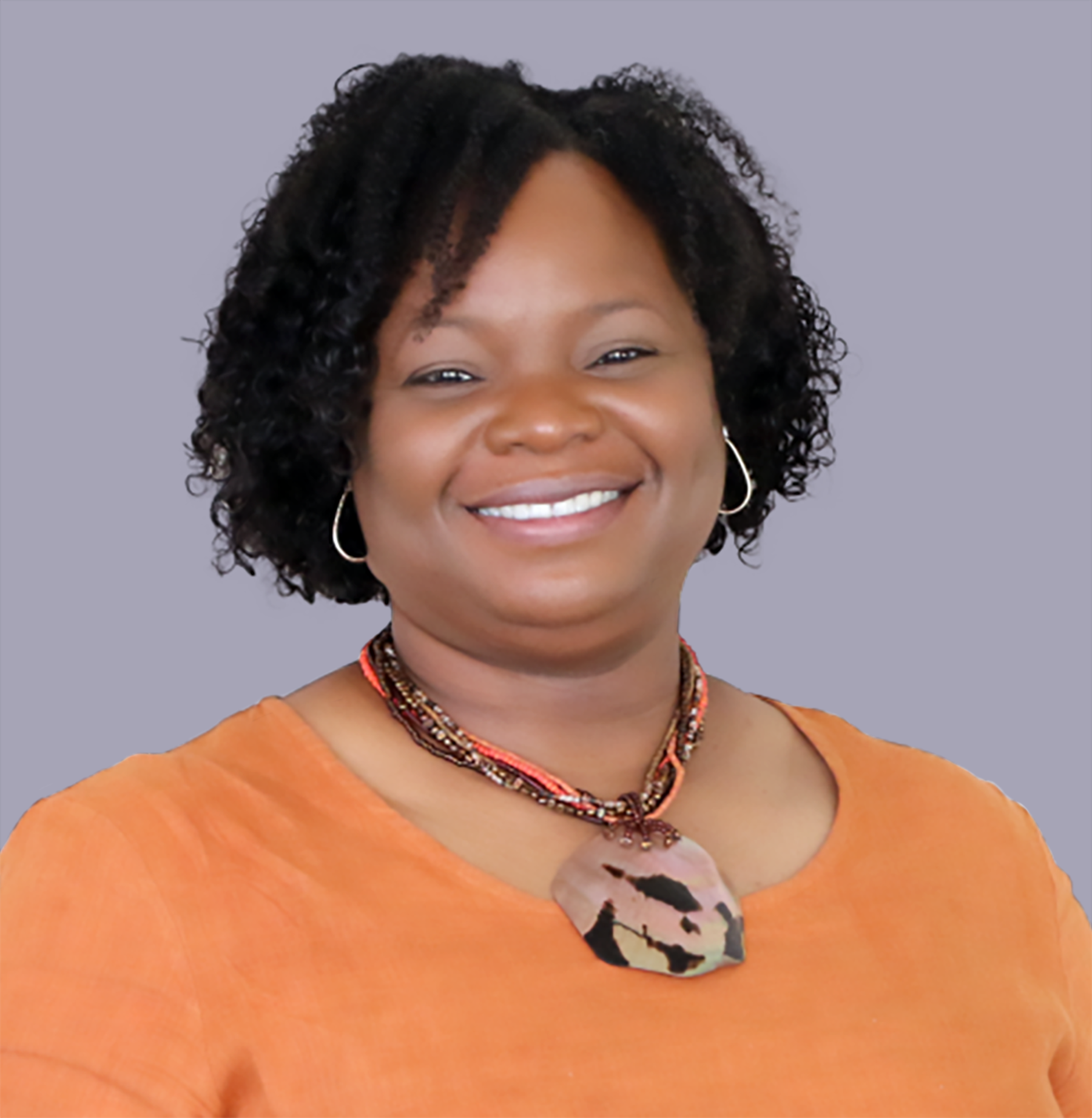 Author: Marianne Rice, Vice President of Music Education & DEI Initiatives
Author: Marianne Rice, Vice President of Music Education & DEI Initiatives
Why is music education important? Some may think music education is a privilege. However, at its core, music is a universal language that creates the melodies of our lives, and music education is the necessary vehicle we use to transport students to other destinations and new levels of growth. Through music, students can embark on a magical journey and explore the life and time of Johannes Brahms, Ludwig van Beethoven and other iconic composers. They can travel and hear the emerging, diverse musical sounds of New York City, New Orleans, Chicago and a world of other breathtaking, faraway places. They can discover friendship and a profound sense of self-accomplishment knowing their skills improve each and every time they practice.
Here at the Jacksonville Symphony, with the support of many, we can present educational programs that encourage and enlighten our students through musical expression and development. Students across Northeastern Florida experience live and virtual performances that are interactive and engaging. For instance, in October 2022, 1,375 elementary school students attended Preludes concerts in Jacoby Symphony Hall. Preludes concerts are 45-minute educational concerts for students in grades one through three that introduce them to the instruments in the Symphony and help them develop an appreciation for classical music. Holland & Knight provided funding for free bus transportation so students at Title One schools could attend. 13,464 students who could not attend the Preludes concert in-person viewed the performance recording virtually in their classrooms.
In December 2022, 4,734 students from 55 schools attended two school matinee performances of the Jacksonville Symphony’s First Coast Nutcracker. Prior to the performance, teachers received a link to the online Nutcracker Adventure Guide and lesson plans. Through Students at the Symphony, a free program for Title One schools, teachers can register for students to attend select Coffee concerts. This year, 100 students from the 5,000 Role Models of Excellence program attended our Paul Simon performance on November 4, 2022, and our Duke Ellington & Billy Strayhorn Coffee concert on January 13, 2023. Students also had a “Meet and Greet” with Principal Tubist James Jenkins, JSYO Music Director and Assistant Conductor Grant O’Brien and Associate Conductor Kevin Fitzgerald.
Our School Ensemble Visit program is designed for an informal, interactive and age-appropriate educational experience. Jacksonville Symphony musicians present engaging, thematic performances for students. To date, 36 Title One institutions have registered for a school ensemble performance. Along with school ensemble visits, on December 2, 2022, the Jacksonville Symphony Chorus performed a Holiday Concert for 600 students at Macclenny Elementary School, a Title One school in Clay County.
Our educational programs also include post-secondary education. For instance, 273 students participated in our Student Workshop Conductor Visits, which is a free program for local schools and colleges in which the JSYO Music Director leads working sessions with students on their repertoire, mini-masterclasses and adjudications. In September 2022, Tony Nickle, our Vice President and Artistic Administrator, conducted a presentation and spoke to 60 music students at Flagler College about work done behind the scenes at a symphony orchestra.
Our youth orchestra program, Jacksonville Symphony Youth Orchestras (JSYO), serves 187 students ages seven to 21. Rehearsals are held every Sunday from September through May at Florida State College of Jacksonville (FSCJ, South Campus), and students perform four concerts in Jacoby Symphony Hall. In addition to JSYO, our after-school program, Jump Start Strings, provides music instruction to 60 students attending Title One schools in Duval County. Together, our wide variety of programs strive to reach all students, from equally diverse ages and backgrounds, so they have access to the transformative power of symphonic music.
As we continue with our 2022/23 season, more students will have the opportunity to engage and participate in the Jacksonville Symphony’s music education programs. This season, we will reach approximately 35,000 students through our music education programs. So, why is music education important? It is important because it is essential to being human. It allows us to express ourselves in a way without words, take us to new places in the comfort of our homes, classrooms and performance halls and connect with others through our mutual passion for this artform. It is us; it is you; it is me. Music education ensures this continues for many generations to come as students are the ones who hold the future of music. Therefore, it is our mission to keep enriching the human spirit through symphonic music.

